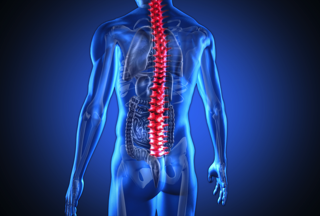
The focus on recovering from brain and spinal cord injuries is rest and rehabilitation, but research is showing another vital aspect of optimal recovery: Treating your gut bacteria and healing your gut.
We host about three to four pounds of gut bacteria in our intestines. Numbering in the trillions and with hundreds of varieties discovered so far, these bacteria are known as the gut microbiome. Research in the last decade has shown they are vital to many aspects of health, including brain health.
This is because gut bacteria travel to the brain via the vagus nerve, a large nerve that connects the brain with the gut. The gut and the brain communicate with one another via the vagus nerve in what is called the gut-brain axis. This means your digestive health profoundly affects your brain health and hence brain and neurological recovery from injury.
In fact, an unhealthy microbiome — too little healthy gut bacteria, too much bad bacteria, and lack of diversity of gut bacteria — has been shown to promote brain inflammation. Although inflammation following an injury is an appropriate immune response, if it continues unchecked it can not only thwart recovery but also accelerate brain degeneration and raise the risk of neurodegenerative diseases such as dementia or Parkinson’s. An unhealthy gut microbiome promotes unnecessary and destructive brain inflammation.
Study shows treating gut bacteria helps spinal cord injury recovery
There’s a reason so many people who have had a brain injury or spinal cord injury suddenly suffer from gut problems — the injury affects the gut-brain axis and gut function suffers as a result.
As a result, the gut microbiome is impacted in what is called dysbiosis — when the composition of gut bacteria becomes unhealthy and pro-inflammatory.
Plenty of people already have dysbiosis without having sustained a brain injury or spinal cord injury. Other things that cause dysbiosis include chronic stress, too much sugar and starchy carbohydrates, excess alcohol consumption, hormonal imbalances, a junk food diet, not eating enough vegetables, and other factors that are endemic to life in the United States.
As you can imagine, this means many people who sustain a head injury or spinal cord injury have dysbiosis to start with, which makes recovery even more difficult. And, indeed, the mouse study showed that dysbiosis prior to spinal cord injury exacerbates impairment and results in more damage.
Spinal cord injury promotes intestinal permeability, also known as leaky gut. This is a mechanism in which the lining of the intestines becomes inflamed and overly permeable, allowing undigested foods, bacteria, yeast, and other pathogens into the sterile environment of the bloodstream, where they trigger inflammation throughout the body. The study also showed a spinal cord injury causes dysbiosis.
The extent to which leaky gut and dysbiosis play a role predicts the magnitude of impairment from the injury.
When leaky gut happens it is common for a leaky blood-brain barrier to occur as well. This means the microscopic lining of the brain also becomes overly permeable, allowing pathogens into the environment of the brain. When coupled with dysbiosis, leaky gut and leaky blood-brain barrier trigger brain inflammation and prevent healing.
The good news is that the study showed mice fed probiotics after the injury showed less neurological damage and better recovery.
If you have sustained a brain injury or spinal cord injury, it’s vital to support healthy gut function and a good microbiome. Strategies include avoiding sugars, junk foods, and inflammatory foods (gluten and dairy are inflammatory in many people), eating plenty of vegetables to provide fuel for healthy gut bacteria, and take high quality probiotics.
Ask my office about functional neurology and dietary recovery strategies after a brain injury or spinal cord injury.



Latest from the Blog
Autoimmune Disease Management with EBOO Therapy
July 17, 2024Autoimmune diseases, characterized by the immune system attacking the body’s own tissues, present significant challenges in treatment and management. Extracorporeal Blood Oxygenation and Ozonation (EBOO) therapy offers a promising adjunctive approach to managing autoimmune conditions. Functioning similarly to a dialysis machine, EBOO filters the blood to remove toxins and pathogens that may trigger autoimmune responses. […] Read more
Latest from the Blog
Detoxification and EBOO Therapy: Optimizing Cellular Health
Detoxification plays a crucial role in maintaining optimal health in today’s toxin-laden environment. Extracorporeal Blood Oxygenation and Ozonation (EBOO) therapy offers a sophisticated approach to detoxifying the bloodstream and enhancing overall well-being. Operating similarly to a blood filtration system, EBOO effectively removes toxins, pesticides, and chemicals that accumulate in the body, supporting the body’s natural […] Read more